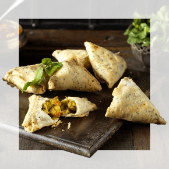Whether it’s food or drink, few countries have had such an enormous impact on world cuisine as France.
Champagne to start of course, followed by Chateaubriand washed down with a ruby red Bordeaux or a coq au vin accompanied by Sauvignon Blanc, then there’s the cheese to follow and a glass of cognac.
Yet French gastronomy would have become a footnote in history were it not for the brilliance of one man. A man whose discoveries have also saved countless millions from disease and whose legacy lives on in the Covid vaccine that has saved the planet.
This year marks the 200th anniversary of the birth of Louis Pasteur, perhaps best known for inventing the process of pasteurisation that bears his name and prevents milk and other drinks from souring but with a field of influence far wider.
His work in this area began when the Emperor of France, Napoleon III, personally asked him to save the nation’s wine industry, which was on its knees due to the enormous volumes at home and due for export that kept going off.
Pasteur discovered that the microbes that caused wine to spoil could be killed by heating. He also discovered that these microbes did not just spontaneously emerge but were introduced by dust and other particles. By pasteurising food and drink then sealing from contaminants it could be preserved.
Pasteur was driven by the heartbreak of losing three of his five children to typhoid and he began wondering if the process of food being contaminated was the same as disease affecting humans. How could such contamination be prevented, treated or survived?
His first breakthrough came with silkworms where disease was crippling the silk industry not only in Europe but also China. His method of preserving healthy silkworm eggs and preventing contamination by external organisms is still used in the industry today.
Pasteur then turned his attention to livestock and following his own mantra that “chance only favours the prepared mind” he noticed that strains of chicken cholera lost its potency over generations. By injecting healthy chickens with this less potent strain he discovered they became resistant to cholera. He made similar discoveries with cows suffering from anthrax and from there it was a short step to the realisation that injecting a small amount of disease into a human can make that person resistant to a more virulent strain.
In 1885, Pasteur vaccinated Joseph Meister, a nine-year-old boy who had been bitten by a rabid dog. The vaccine worked, attracted worldwide attention and the dawning of the era of preventive medicine.
Pasteur was unable to save his three children from typhoid but his work laid the foundations for vaccines that have since saved countless millions from disease.
Thanks to him we can also ensure food and drink from France and around the world that can be bought in your local supermarket is safe to consume.
About Oliver Parkinson
Sous Chef of SK Foods.
Your food. Our Passion.






